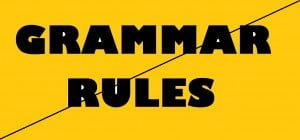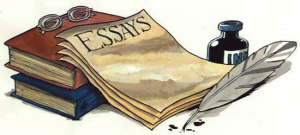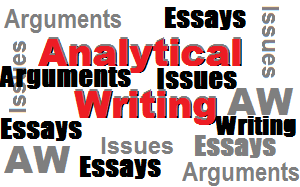
AW Challenging… Really?
If you ask students to name the most difficult section in the GRE, most engineers would say: “Verbal Reasoning” and most non-engineers would say “Quant”. Hardly anyone would suggest that Analytical Writing plays much of a role either in cracking the GRE or getting an admit for an MS in US. For most students taking the GRE exam, therefore, the Analytical Writing section (also called AW) is a surprisingly challenging part. There are several reasons for this.
The Problems of the Engineer
- First, if you are like most students who come to Dilip Oak’s Academy, you have lost touch with essay writing long ago – your last encounter with this lost ‘art form’ was probably 3-5 years ago in the 10th standard, and whatever you did learn about it has long been buried under the load of highly technical data that you had to stuff your head with during your bachelor’s course.
- Second, as an engineer (or even a non-engineer) you don’t even understand why AW should be included in the GRE at all (check out this article if you are still not clear).
- And third, you probably think that since you did essay writing in school, you should be able to manage this section without too much trouble.
However, the AW section is important and it demands that you meet a very specialized (and exhausting) set of requirements.
Why the Big Fuss about AW?
1. Do you understand the issues?
The first Task in AW is always the Issue essay where, you have to think deeply about topics that you most probably have never read about or ever thought you would have to tackle. So, for example:
- Do you think that getting exposure to another culture will help you understand the culture of your own country?
- How do you think that a civilization should be judged – on the basis of its scientific and cultural achievements or on the basis of the well-being of its people?
- And finally, do you think that people in public life should be required to hold to the highest ethical and moral standards and do they have any right to expect privacy?
(For the actual topics, see the pool of issue topics here.)
On these unfamiliar topics, you have to come up with a variety of specific examples that show your insight into the topic; and you have to use these examples to examine the central issue from a variety of different angles. At the very least, you are expected to address both sides of the issue.
2. Getting into arguments
In the Argument essay (see the argument topic pool here), which is the second Task you will tackle in the Analytical Writing section, you have to do several things. Among them, you may have to:
- evaluate the given argument and its line of reasoning
- raise questions about its hidden assumptions and flaws
- set out the evidence required to strengthen or weaken it or
- examine whether its predictions are likely to come about.
You need to know how to do these things and you need to practice them so that, you can analyze and type in smooth, seamless flow. Further, in both these types of task, you will have to fine tune your essay to meet the specific requirements of the question type you are dealing with in that particular task – and there are 6 different question types in the issue task and 7 different question types in the argument task.
Summing up the Challenge
This means that right at the beginning of the exam, you will have to put in an hour of intense analytical effort to identify the key elements in the argument or issue topic and to produce well-written essays which meet the precise requirements of the task. For this your mind will have to be focused, alert and clear and your fingers will have to have the stamina to put in the 20 minute-burst of near-continuous typing required to generate an essay of 350-450 words, the minimum required to adequately cover an analytical writing topic. It’s not the Olympics but, you need to be physically and mentally prepared for the task. So, here’s the bottom line: if you want to be competent at the AW tasks, you will need careful, well-planned preparation and practice. Make sure you do this well beforehand.
Note: If you are a student at Dillip Oak’s Academy you can take a free Analytical Writing Counseling Appointment (scroll to the end of the page on this link for further details).




